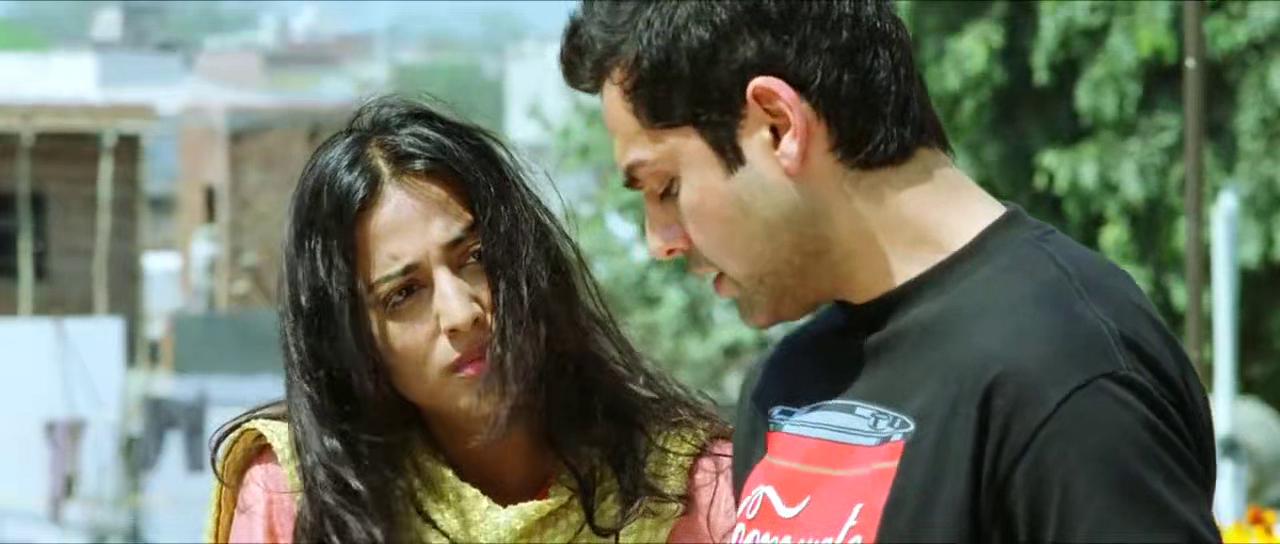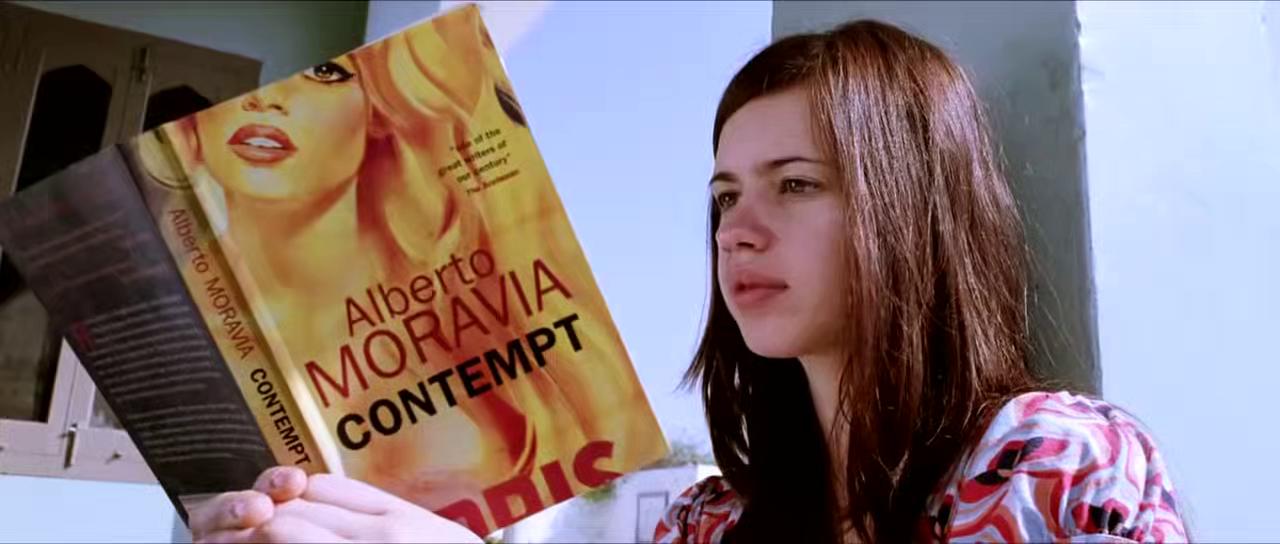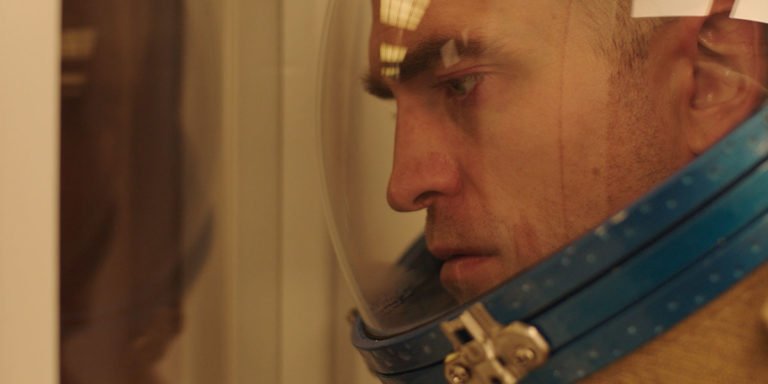“Black Comedy is a farce that is played in the dark, as you know, with the lights full on. It’s the Chinese convention of reversing light and dark, and exactly where anybody is at any given moment is the play.” – Peter Shaffer.
Adapting Devdas has been an absolute favorite for the filmmakers in our country. While pursuing an ardent research for this, most of us will be able to decipher, that, it is not only popular with Hindi filmmakers, but Devdas has also been taken up by Urdu, Malayali, Telegu, Tamil, and Assamese filmmakers in recent history. Most of these adaptations might fall into different linguistic categories, but it is the genre (romance, drama) that binds them together. However, Anurag Kashyap’s Dev.D takes a step forward and brings itself into a different genre, i.e. – black comedy. Wikipedia defines Dev.D as a “romantic black comedy.”
In layman’s terms, one would refer to this film as the ‘modern’ day Devdas. By ‘modern’, we usually mean, keeping the story in the present, and changing attributes in terms of character, attitude, moral values, and most imperative of all – the visual aesthetics of the film (clothing, space, etc.). To go with such a description of a modern-day adaptation is not wrong, but what it is, is that it is incomplete. Such an adaptation must also shed light on the timeline and culture its characters belong to. Not just that, it should also try and question existing narratives, while faithfully following the original context.
With regard to the film text, Dev.D is all set to define ‘new-age’ adaptations, with respect to character names and backdrops. The audience can easily identify flushes of postmodernism in the narrative. What stands out is the eradication of ‘sex’ or ‘sexual desire’ as a taboo, in terms of the Indian society. For instance, Dev, Chanda, and Paro, share similar characteristics in terms of expression of ‘libido’. Dev.D is written in a fashion that chooses to rid the text of gender stereotypes by putting to use the very existence of them. Unfortunately, one cannot overlook the deliberate use of the constructs of patriarchy and chauvinism that Dev.D is ridden with. Oxymoronic in its approach, it also reflects on how the two female leads- Chanda and Paro, free themselves from the shackles of male superiority within the narrative space they belong to.
In the initial stages of the film, when Dev comes back from London, Paro is successful at sexually intimidating Dev. According to Dev, a good woman does not jump to fuck. A good woman is one who will wait for the man to take the first step, reiterating the point of approaching the problem of stereotyping by using the stereotypes themselves. Unlike many who throw jibes at only men to counter sexism and stereotyping, Kashyap stands to pay equal attention to Dev, Paro, and Chanda, in order to fulfill the aim of the plot.
Why is Dev-D a black comedy?
Issues of male domination and sexism have never assumed such lucid representation, like in Dev.D. And because ‘black-comedies’ try to present graver issues under lighter and comical tones, Dev.D becomes one too. This ease has allowed the maker, as well as the audiences, to understand these issues (if any) in greater detail, without having to switch between temperaments. Through a delicate childhood relationship between Dev and Paro, and to when they are in a long distance relationship, Kashyap has shown how the ‘guy’ had the upper hand since childhood. He mistakes his superiority to be paramount and therefore does not have it questioned, even as a London-return.
Not only did the adaptation’s narrative stick to the basics of this present day timeline, it also managed to take up real issues and incorporated their portrayal. For example – The Delhi Public School RK Puram – MMS scandal and the Sanjeev Nanda BMW hit and run case.
Entry: Leni/ Chanda.
Leni, a school student, lands up in trouble when she decides to have sex with her boyfriend. Paro was victimized because of Dev’s egoistic self and Leni’s life was toppling because of an irresponsible boyfriend whose intentions weren’t earnest. In both cases, the women have had to face hardships, and their lives are highly determined by what the men in their lives do. To analyze the change in the course of events, one must take their individual lives into consideration, for instance – Paro gets married to someone else, absolutely against her will. Post-marriage, she is shown to be a woman who values her own worth and refuses to physically involve herself with Dev. Leni courageously takes on her life and cuts through the thorny society that led her father to commit suicide and flee from her own family. In order to gather funds for her education, Leni becomes a prostitute that helps her earn a livelihood at a very tender age, unlike her peers.
To single-out the lives of these women, and not pay attention to their worth in Dev’s life would be wrong. Leni becomes the typical object of sexual desire, yet manages to make a difference (credits to the writing). What seemed avoidable to me but not to the maker was turning Leni into Dev’s love interest, eventually. Whereas, Paro has not completely been able to get over Dev, yet manages to prioritize her worth. She also succeeds in making Dev understand that she was no longer available the way he wanted her. Her concerns regarding Dev and his wellbeing were well rooted in ideas of friendship that dated back to their childhood. There are no character-binaries at play in Dev.D. All characters have good reasons to be the way they are.
In terms of loyalty towards the original text, the lack of trust leads Dev to lose the women he loved. A common tool for ‘new-age’ adaptations is to alter their endings – the original text ends with Dev’s demise. However, Dev.D manages to get a happy ending with ‘woke’ lessons to be learned. No compromises are made in terms of storytelling, in order to have Dev-D make social comments and get audiences to think. The biggest message that comes across is the need to acknowledge ‘change’, but it does not end at a mere acknowledgment. There is acceptance too.


![The House That Jack Built [2018]: Astonishing Examination of Evil](https://79468c92.delivery.rocketcdn.me/wp-content/uploads/2018/10/house_that_jack_built-1280x620-768x372.jpg)


![Cherry [2022] ‘Tribeca’ Review: An Uplifting and Important Coming-of-Age Story](https://79468c92.delivery.rocketcdn.me/wp-content/uploads/2022/06/Cherry-2022-768x432.png)

